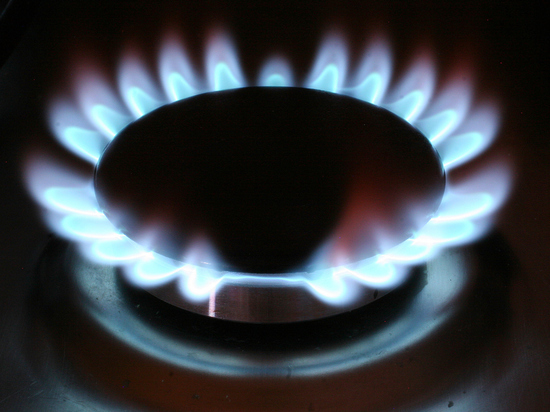The idea of a price ceiling for Russian gas was considered unrealizable
[ad_1]

Not all EU countries are ready to support it
Exchange prices for gas in Europe jumped immediately by 35%, exceeding $3,000 per thousand cubic meters. The immediate reason was an unscheduled stop for an indefinite period of work of Nord Stream 1, the main export route from Russia to the countries of the Old World. But the recent loud statement of the head of the European Commission, Ursula von der Leyen, also fits into the context of what is happening. The official announced the readiness of Brussels to set an upper price limit for pipeline gas from the Russian Federation.
According to the head of the European Commission, this measure “should prevent attempts to manipulate the EU energy market by President Vladimir Putin.” Meanwhile, the idea of a “gas ceiling”, which in itself looks like a formidable and promising strategy, raises a number of questions. For example, how technically and legally feasible is it? Will the European Union be able to agree within itself on a single document on limiting prices for Russian gas for all countries of the alliance? Finally, what are the implications of this?
“It is clear that the proposal of the European Commission has many pitfalls,” says Artem Deev, Head of the Analytical Department at AMarkets. – Firstly, if such a restriction on Russian gas prices affects long-term contracts, it will be contrary to Gazprom’s policy. The cost of gas, fixed in such documents, is regularly reviewed depending on the global situation. The Russian supplier may simply refuse to conclude contracts on new terms. As a result, gas on the continent will rise in price to infinity.”
Secondly, Deev continues, there is no single, coordinated position on this issue in the EU itself. There are countries (primarily Germany) that are critically dependent on gas supplies from Russia via pipelines. And there are still not enough LNG terminals: in Germany, construction of the first regasification terminal began only in July, which will partially replace raw materials from the Russian Federation with LNG supplies from other countries.
Thirdly, if the idea is implemented, Russia’s presence in the European energy market will become nominal. And this, in Deev’s opinion, is fraught with large-scale problems for the Eurozone economy in the form of new rounds of inflation, as well as bankruptcies of companies and enterprises that governments will not be able to compensate for the losses incurred.
“In theory, Brussels is able to legally set a fixed upper price for Russian gas and adhere to it,” says Gleb Finkelshtein, a specialist in the strategic research department at Total Research. – The parameters of the ceiling, in fact, can be anything – from prices last autumn to the cost of gas in 2019 (that is, from $1,000 to $250 per thousand cubic meters – “MK”). But in this case, the countries that will support this project will simply be left without Russian raw materials until the innovation is canceled as erroneous.
That is, the European Union will undermine its own energy security with its own hands, since it is simply not able to fully replace supplies from the Russian Federation now.”
Norway will not sell gas at below market prices, and the potential for increasing production there is limited. The Middle East and African states are in exactly the same situation, and besides, the mass of mining companies in Africa are much more loyal to Russia than to Europe.
The United States has its own headache: the country is being overwhelmed by energy, gasoline inflation, a record for decades, which the Biden administration has not yet found control over. At the same time, in Finkelstein’s opinion, only Hungary is capable of sternly refusing to participate in the agreement regulating the new pricing policy of the EU. From this it can derive considerable benefit, since it will sell Russian pipeline gas at exorbitant prices to its neighbors on the continent.
Well, as for Gazprom, it will most likely either reduce exports (that is, supply only the volume paid for at the previous prices), or even zero it in the direction of “unfriendly” countries.
“The proposal of the European Commission has no future, since it puts an end to the very possibility of buying gas from Russia,” says Igor Yushkov, an expert at the Financial University under the Government of the Russian Federation. – Any current contract between Gazprom and one or another consumer in Europe contains a pricing formula, and today payment is made exclusively in accordance with it. If the members of the alliance agree to introduce a maximum fixed price of, say, $100 or $200 per thousand cubic meters, and start paying Gazprom according to these tariffs, it will stop all trade relations with them altogether.”
[ad_2]
Source link






